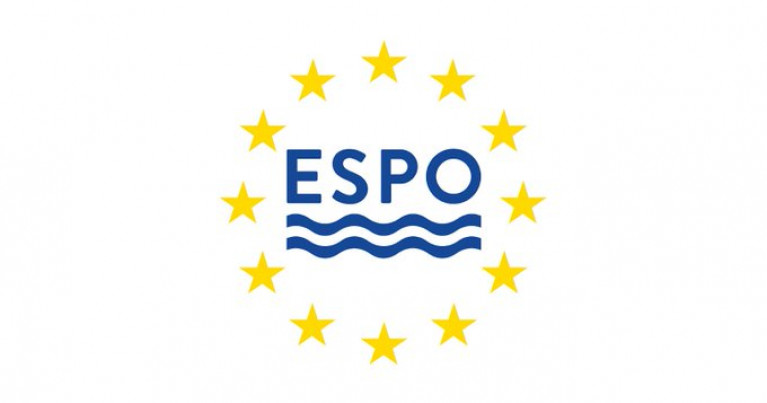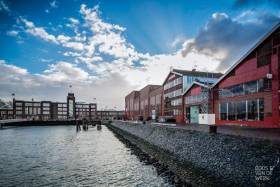Displaying items by tag: CEF
ESPO Welcomes EP-TRAN Recommendations On Ports, Short-Sea Shipping & CEF to Decarbonise
The European Parliament Transport and Tourism Committee (TRAN) today will discuss the draft own-initiative report on technical and operational measures for more efficient and cleaner maritime transport.
The aim of MEP Karima Delli, Chair of the TRAN committee and rapporteur for this file, is to propose a roadmap at EU level that sets out specific technical (design) and operational measures to limit emissions from the maritime sector.
The European Sea Ports Organisation (ESPO) believes that the draft report of Ms Delli contributes in a positive way to the reflection on ways to make maritime transport cleaner and more efficient and the role of ports in that.
Overall, ESPO particularly values the recognition of the key role played by maritime transport and ports in the EU economy. Europe’s seaports welcome the rapporteur’s call to reserve more budgetary resources within the Connecting Europe Facility (CEF) for delivering a modal shift and for achieving the goal of decarbonisation, as well as the demand for the Commission to promote short-sea shipping, on the same basis as rail and inland waterways, as a sustainable alternative to goods and passenger transport by road and air within the Green Deal framework.
The proposal to simplify the access criteria of Motorways of the Sea, in particular for links between ports outside the core network, and by providing significant financial support for maritime links as an alternative to land transport, is also a very positive step forward.
Furthermore, ESPO supports the proposal to correct market distortions created by the current taxation regime applied for renewable energy sources in the Energy Taxation Directive. This is in line with ESPO’s demand to make all clean fuels and energy sources permanently exempt from taxation. ESPO also supports the earmarking of revenues generated by a maritime market-based measure towards funding research and innovation for decarbonising European maritime transport and ports. In addition, ESPO agrees with the proposal to encourage cooperation between all stakeholders with the aim of decarbonising ports.
“We really appreciate that Ms Delli has taken the time and effort to consult with the port sector, and we believe that this draft report is the product of these efforts. Ms Delli clearly understands the crucial role ports are playing, and recognises that ports and maritime transport can positively contribute to reaching the Green Deal ambition. Very rightly, the rapporteur stresses that ports can be hubs for the production, distribution and transport of renewable-energy fuels. We look forward to the further debate in the European Parliament. We hope that the report can be further strengthened so that the Commission can put forward an ambitious but effective policy to come to cleaner and more efficient maritime transport in line with the Green Deal. There is no time, and no money to waste”, comments Isabelle Ryckbost, ESPO Secretary General.
In order to further strengthen the report, ESPO proposes to place greater emphasis on the need for a goal-based approach in the FuelEU Maritime Initiative, and to develop a supportive policy for the deployment and use of onshore power supply, whilst allowing for equivalent alternative solutions. Furthermore, ESPO backs a stronger support for coalitions between all maritime stakeholders, including energy providers, to develop the most effective pathways to the greening of shipping. ESPO also believes that the role of LNG as transition fuel should be better recognised.
The draft Delli report will be discussed in the TRAN committee today. The deadline for amendments is 6 November, and the report will be voted in plenary early next year. To find out more about ESPO’s views on the Green Deal, click here.
ESPO Calls on EU Parliament & Member States to Support Transport Budget Proposal Under New CEF
#Ports&Shipping- The European Commission proposal for the Multi Annual Financial Framework 2021-2027 adopted on Wednesday, reserves a similar budget for the Connecting Europe Facility, the financial instrument for Transport, in the current financial period.
The proposal foresees 12,8 billion EUR under the general envelope, 11,3 billion EUR for transport projects in Cohesion countries and a new envelope of 6,5 billion EUR for investments in transport infrastructure for dual civilian-military use.
For the European Sea Ports Organisation (ESPO), the allocation within the MFF proposal clearly shows the support of CEF as a financial instrument and proves that the Commission, and in particular the Budget Commissioner Günther Oettinger, is recognising the high added value of transport investments in terms of growth, jobs and sustainability.
"We certainly welcome the Commission proposal, but we know that there is still a long way to go. Both the Parliament and Council will have to support this proposal, we cannot allow further cuts. We must now convince the MEPS and the Member States that the CEF Transport budget is serving all sectors and all policies, not only the transport sector as such. We should also convey the message that this budget serves to realise the TEN-T network, an already well identified plan with concrete priorities,” says Isabelle Ryckbost, ESPO’s Secretary General.
While the MFF budget proposal is received positively, European ports believe a lot will nevertheless depend on the concrete layout of the new Connecting Europe Facility proposal due to come out on 6th June. It also remains to be seen how the new military component, which receives a substantial part of the CEF transport budget, will serve the actual investment needs of ports.
“If Europe wants to achieve a fully-fledged and operational TEN-T network, more attention must be given to ports. European ports play an increasingly important role in the transport chain and for the European economy, as they have developed into important nodes of energy, industry and blue economy in addition to their traditional maritime transport role. They can also play an important role in the decarbonisation of the European economy. It is time for Europe to recognise the strategic role of ports and to support their investments accordingly,” adds Isabelle Ryckbost.
A study, commissioned by the European Sea Ports Organisation investigating the future investment needs of European ports, estimates that European ports face investment needs of around 48 € billion for the period 2018-2027. It also shows that port authorities have only been able to obtain 4 percent of the grant envelope over the last four years.
ESPO is looking forward to discuss the European budget and the forthcoming CEF proposal with the responsible DG MOVE Director Herald Ruijters, the European Parliament and the TEN-T Coordinators at its upcoming Conference in Rotterdam, on 31 May and 1 June.
For information about the conference can be found on www.espo-conference.com






























































